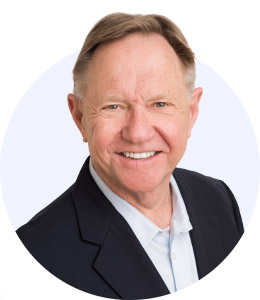Do small gestures and personal touches make a big difference—or at least some difference—when serving customers? I feel the answer is yes. In fact, in a world that’s increasingly automated and impersonal, they are more noticed and appreciated than ever.
I was on the way to a workshop in Austin, Texas. My presentation was scheduled for day two. I decided to arrive early so I could attend the afternoon session for day one. My plane arrived around 11:30 a.m., so I figured I could have lunch with the attendees and be ready for the 1:00 p.m. start. The conference was being held at the Driskill Hotel, which is where I would be staying. Since I was used to not having a room ready when arriving that early, I assumed I would go to the afternoon session and check in at 4:30 p.m. after it was over. No big deal, and it would not have been a problem…in fact, it was the expectation.
When I departed the plane, I received a text from the hotel. It said they were excited to see me when I checked in and asked if I had an estimated arrival time. It was signed “Elina.” I thought it was likely an automated text system they had in place. I am okay with that. I get reminder texts for doctor visits and other appointments, so it seemed normal. I replied that I was arriving early and would be at the hotel around noon. I added that I understood the room would not be ready. Elina responded with, “Let us see what we can do.”
As I walked up to the check-in area, I noticed that the person waiting on me was Elina. It had not been a programmed text, after all. She shared that the room was ready. I thanked her and shared that I thought the text had been an automated one. She then said that they send the texts and communicate with people prior to their arrival. It had such an impact that I have included Elina and the Driskill in this column.
Maybe the personal touch is catching on. In traveling to Chicago to present at a Becker’s conference, I received a text from Yesenia with the Sable Hotel. It read: “We are delighted to have you at the Sable Hotel. May we have your estimated time of arrival?” I wrote that it would be late evening. I received the reply, “Thank you and safe travels. See you later tonight!” What I like is they are creating a process to sequence room preparations, so that rooms are ready as they are needed versus the one-time-fits-all system. People have told me they get frustrated that check-out is around noon, yet no rooms are ready until 4:00 p.m. They know some must be ready sooner. It seems the Driskill and Sable have figured out a more customer-oriented system. When I checked in and commented on the system, the person at the desk said the process helps them to be better prepared for each situation.
The airlines also seem to be figuring out the value of the personal touch. I am a million-mile flyer on Delta. A few months ago, I received a business card from a flight attendant. On the back of the card was a handwritten note reading, “Thank you for being a million-mile flyer.” The fact that I am writing about it shows this small gesture made a difference.
On a Sunday night, I was at O’Hare Airport to fly to Boston via American Airlines. My departure was scheduled for 5:30. We kept getting delayed. After a while, water and snacks arrived at our gate. This was not my normal experience. Someone planned to show empathy and acted.
I am sure you can think of similar small moments that made a difference to you. One morning a person who worked for Pensacola, Florida’s Air Design Systems rang our doorbell to do some scheduled work. As I opened the door to let the person in, he handed me the morning newspaper that had been sitting in the driveway. I would have gone out to get the paper, but since the person picked it up for me, I didn’t have to. This made an impact.
Another example: When I arrived at a restaurant called Zaab Corner Bistro in Lake Geneva, Wisconsin, to pick up a to-go order, it was missing one item. As the person reviewed the order, she realized they had made an error. She apologized. I said it was no big deal and that I would wait till they completed the order. As I was handed the completed order, she shared they had added a dessert at no cost. They did not have to do this. It made a difference.
When I was at Holy Cross Hospital in Chicago, we began asking everyone we saw how we could help them. Not “CAN I help you?” but “HOW can I help you?” This small wording change made an impact. Many times, the person would be looking for a particular area. Hospitals can be confusing, even with good signage. When we helped the person, we would not point. We would say, “Here at Holy Cross, we like to take people to where they are going.” In patient experience feedback, the fact that people were greeted and taken to where they were going was often mentioned and appreciated. We also learned so much on these walks. They created relationships.
I would love to hear from you about people or organizations that did something extra that positively impacted you. Please send your stories and examples my way by emailing Quint@quintstuder.com. Thank you in advance for your helpful feedback.

